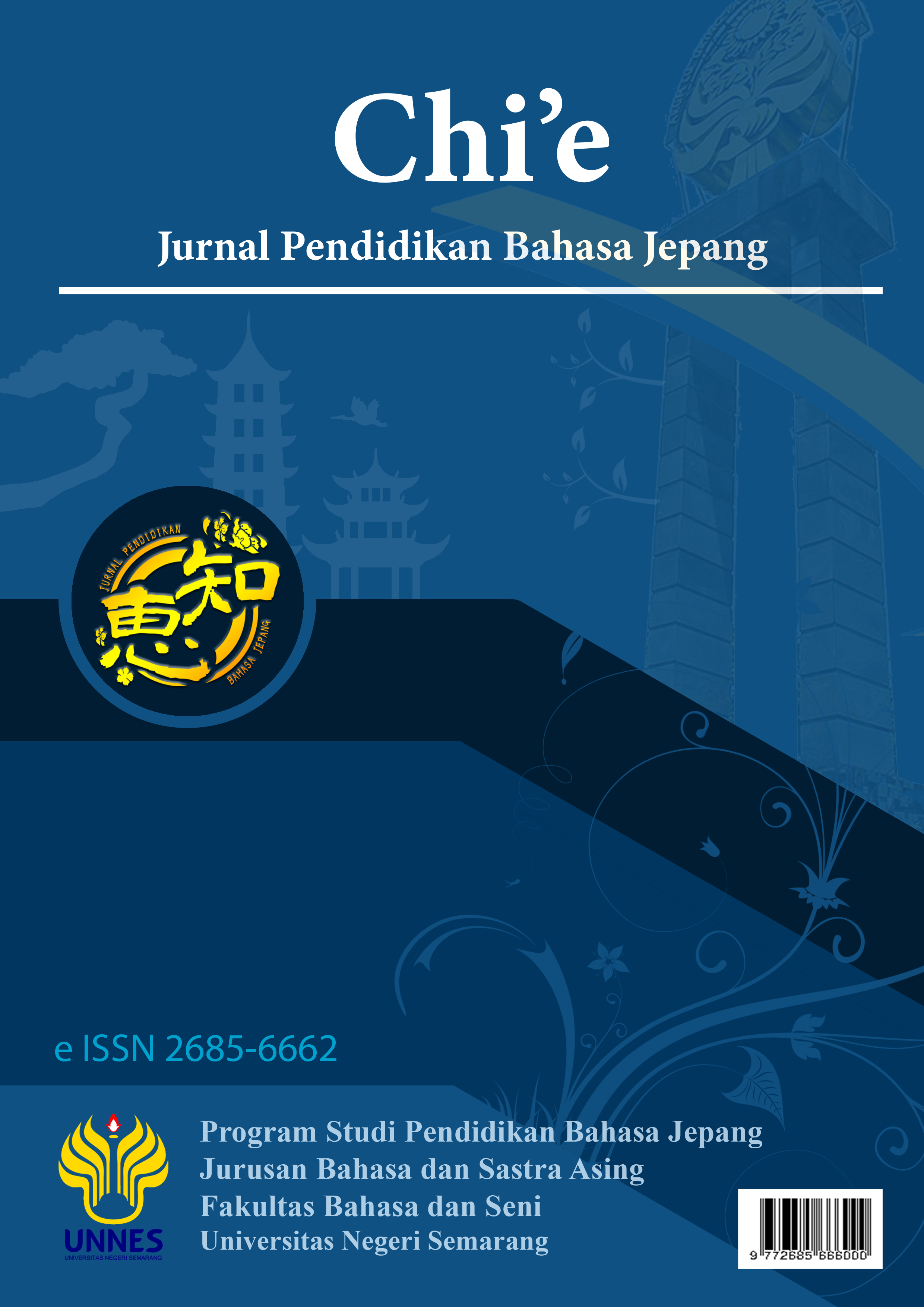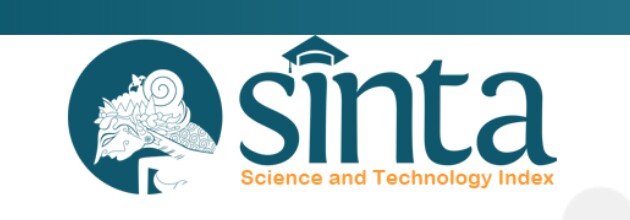Error analysis of Using Verbs Ruigigo “Belajar” by the Sixth Semester Students of Japanese Language Education FBS UNIMA
Abstract
his study aims to discover the causes of errors in using the verbs “belajar,' narau and Manabu. A descriptive statistical method was used in this research. This analytical technique is commonly used for exploratory research. This study's participants were 30 students in the semester VI Japanese Language Education Study Program Universitas Negeri Manado. The data collection technique was carried out through tests on the participants. The tests consisted of 15 questions from the textbooks Minna no Nihongo, Shin Nihongo no Kiso I and II, and several reading materials related to education containing the words narau and Manabu. The results of the study are as follows: (1) Respondents still do not clearly understand the rules for using the verbs' learning' narau and manabu in the context of Japanese sentences, while some respondents are misled by the use of the verbs' learning' narau and manabu which have similar meanings. 2) the effect of B2 on B1 can be seen from the respondent's error in placing the right verb. (3) The respondents' vocabulary still needs to improve, which can be seen from the respondents' answers not placing the verb in the context of the existing sentence. (4) Respondents do not need help understanding the verb changes correctly. After the data was processed and formulated into statistical form, 96.1% of errors appeared, and 38.9% of students correctly used the verbs' learning' narau and manabu.
Keywords :
Jurnal Pendidikan Bahasa Jepang
Japanese Education Journal
Ruigigo
Japanese Language Education















